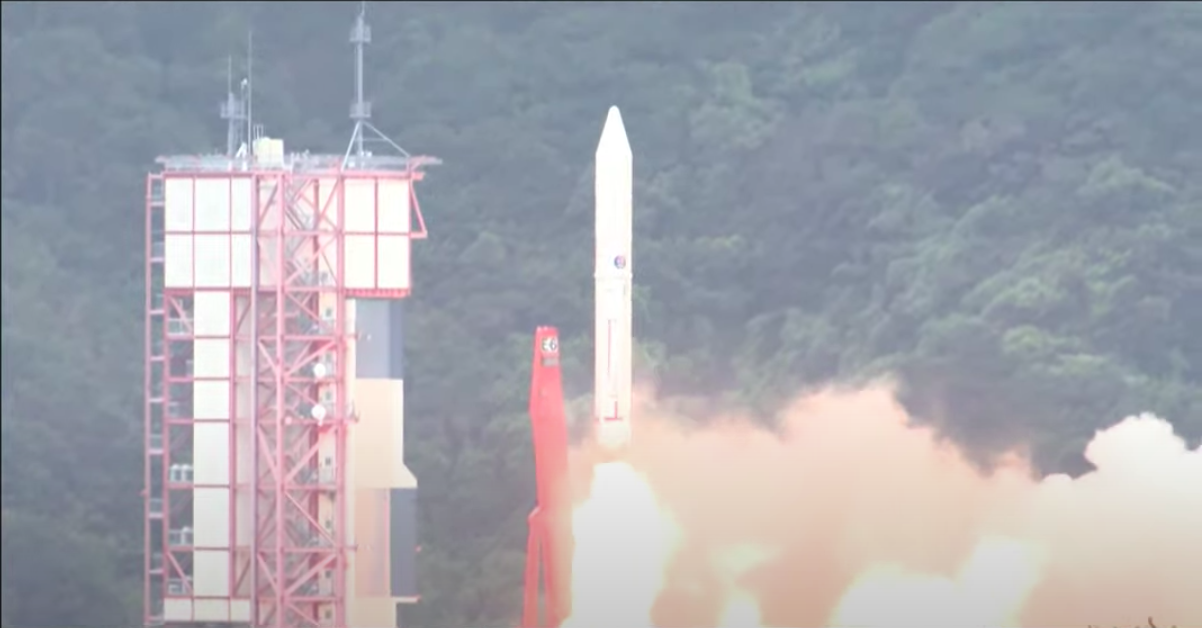Japan's Epsilon rocket fails during launch of tech-demonstrating satellite: reports

Japan's first orbital launch of 2022 did not go according to plan.
A Japanese Epsilon rocket lifted off from Uchinoura Space Center at 8:50 p.m. EDT on Tuesday (Oct. 11; 0050 GMT and 9:50 a.m. local Japan time on Oct. 12 ), on a mission known as Innovative Satellite Technology Demonstration 3.
Everything went smoothly initially; the solid rocket's first two stages performed nominally, according to callouts by commentators during the launch webcast, which was provided by the Japan Aerospace Exploration Agency (JAXA).
But that webcast indicated that trouble seemed to arise around the time when the third stage was supposed to kick on. As a result, mission controllers activated Epsilon's flight termination system, which destroyed the rocket, Japanese media outlet NHK reported.
"JAXA is investigating the detailed cause of the trouble," NHK wrote on Tuesday night (in Japanese; translation by Google).
Related: The history of rockets
The main satellite that was supposed to reach orbit on Tuesday was RAISE 3 ("Rapid Innovative payload demonstration Satellite 3), a 240-pound (110 kilograms) craft packed with seven technology-testing payloads.
Breaking space news, the latest updates on rocket launches, skywatching events and more!
Those payloads included two experimental thrusters, one of which was designed to use water as fuel; a satellite-deorbiting "drag sail;" a deployable power-generating membrane structure that can also serve as an antenna; telecom tech; a high-speed software receiver; and a commercial graphics processing unit, according to EverydayAstronaut.com.
Five tiny cubesats also flew on the Epsilon tonight as rideshare payloads.
Tonight's mission was the sixth overall for the 78-foot-tall (24 meters) Epsilon, and its first failure. The five successful liftoffs occurred in September 2013, December 2016, January 2018, January 2019 and November 2021.
The three most recent Epsilon launches all serviced JAXA's Innovative Satellite Technology Demonstration Program, which aims to spur the development of novel Japanese space tech, especially gear developed by universities and private companies.
Mike Wall is the author of "Out There" (Grand Central Publishing, 2018; illustrated by Karl Tate), a book about the search for alien life. Follow him on Twitter @michaeldwall. Follow us on Twitter @Spacedotcom or Facebook.

Michael Wall is a Senior Space Writer with Space.com and joined the team in 2010. He primarily covers exoplanets, spaceflight and military space, but has been known to dabble in the space art beat. His book about the search for alien life, "Out There," was published on Nov. 13, 2018. Before becoming a science writer, Michael worked as a herpetologist and wildlife biologist. He has a Ph.D. in evolutionary biology from the University of Sydney, Australia, a bachelor's degree from the University of Arizona, and a graduate certificate in science writing from the University of California, Santa Cruz. To find out what his latest project is, you can follow Michael on Twitter.
